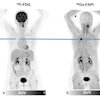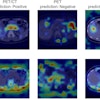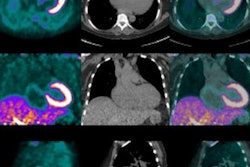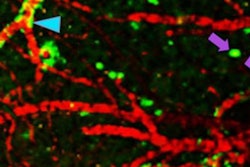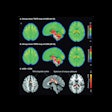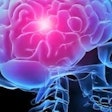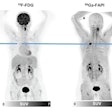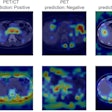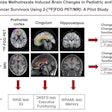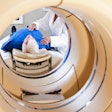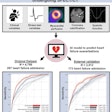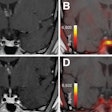"During our study, we found a significant number of brain and intracranial findings in patients who were asymptomatic," radiology resident Dr. Ana Franceschi said. "Although the brain pathology was incidental, many findings had major implications on patients care. More serious findings include clinically silent metastases, Creutzfeldt-Jakob disease, lymphoma, pituitary tumors, and a chronic subdural bleed."
Franceschi and colleagues retrospectively reviewed 234 initial FDG-PET/MRI body scans from 204 cancer patients, who had a mean age of 55 years. The simultaneous imaging protocol used a body coil and dedicated body sequences without contrast. In all, 119 studies were conducted for cancer restaging, while 72 were performed for staging. In addition, brain images were reviewed by a neuroradiologist and a nuclear radiologist.
Of the 204 patients, 30 (15%) had positive brain findings on PET/MRI body sequences. There were 11 cases (5%) of vascular disease, with seven patients (63%) having chronic microvascular ischemic changes and four (36%) with brain infarcts. In fact, one infarct was a subacute stroke in a paraneoplastic patient, while a 38-year-old woman had evidence of a newly discovered infarct.
PET/MRI also showed post-therapy changes in the brains of nine patients (9%) due to radiation, surgery, or chemotherapy. In addition, eight patients (9%) had serious brain pathologies, including four paraneoplastic cases, one metastasis, two pituitary tumors, and one chronic subdural collection.
"Imaging of the entire brain is not part of the typical base of skull to midthigh PET/MRI protocol," Franceschi said. "These pathologies could change patient management or alter patients' prognosis. As a result of this study, we would like to advocate other institutions to image the entire brain when performing body FDG-PET/MRI."


